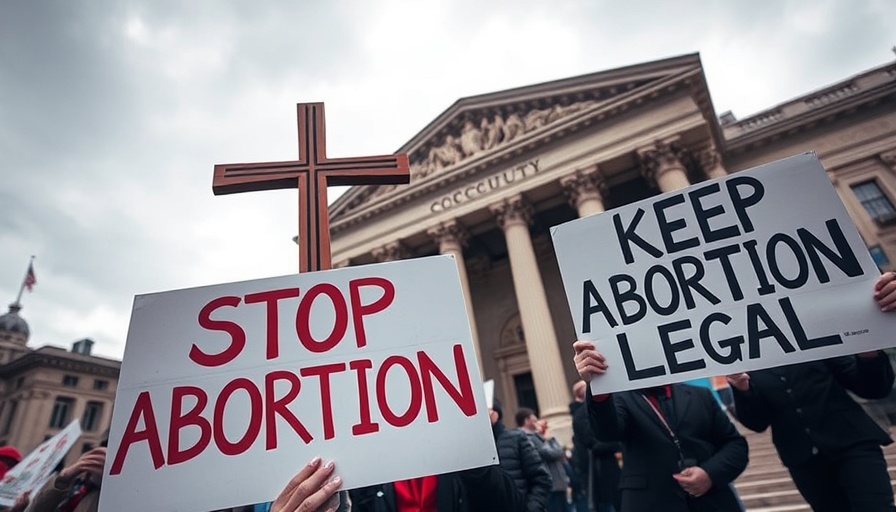
Understanding Trump’s Impact on Abortion Rights
As the saga of abortion rights continues to unfold in America, the substantial influence wielded by former President Donald Trump's judicial nominations remains a critical point of contention. In recent years, the appointment of several judges who have strong ties to anti-abortion groups marks a significant shift in the judiciary landscape. This shift could not only redefine the future of abortion rights but also shape legal precedents that may affect generations to come.
The Role of Lifetime Appointments
Trump’s judicial picks, many of whom hold lifetime appointments, could have far-reaching implications for reproductive rights. With their positions secured, these judges are poised to influence crucial court decisions long after Trump has departed from politics. Unlike elected officials, judges' judicial philosophies can have a lasting impact, serving as the backbone of legal rulings concerning abortion and related rights for decades.
Historical Context of Abortion Rights in the U.S.
The battle over abortion rights in the United States has evolved over decades, rooted deeply in the landmark Supreme Court case Roe v. Wade of 1973. This case established a woman's legal right to seek an abortion, but subsequent rulings and administrations have challenged this foundation. Trump’s judicial appointees represent a new wave of conservatism that could bear down upon these established rights.
Potential for Future Court Opinions
Legal experts warn that the actions of Trump's judicial nominees could bolster state-level efforts to impose stricter abortion laws. With cases like Whole Woman’s Health v. Hellerstedt looming large, future court interpretations will be scrutinized closely as they could reallocate abortion rights from federal protections to state control.
The Social Implications of Judicial Shifts
As state laws surrounding abortion grow more polarized, the social fabric of America faces new challenges. Advocates for reproductive rights fear a stratification of access depending on geographic location, where some women may retain their rights while others find them significantly curtailed. The strong connection of Trump's nominees to anti-abortion organizations enhances the potential for a judicial culture that favors restriction.
What’s Next for Abortion Rights?
As we look towards the future, the questions linger—how will Trump's judicial picks affect on-the-ground realities for women seeking abortions? And will the courts ultimately reflect the views of the electorate or a more conservative judicial ideology? Analysts suggest that the landscape may change dramatically in the wake of the 2024 elections, depending on who occupies the White House and which party maintains control over Congress.
Counterarguments: The Resistance to Change
While Trump's appointees represent a movement towards tighter restrictions, there is also a counter-narrative bubbling beneath the surface. Increasing activism from various women's rights organizations, such as Planned Parenthood and the National Organization for Women, creates a formidable counterweight. These groups have been working diligently to safeguard existing rights and mobilize public opinion against restrictive measures.
The Future of Reproductive Rights: Who Will Decide?
The upcoming legislative sessions across multiple states will likely serve as battlegrounds for reproductive rights in America. As judges interpret laws, the political engagement of citizens, particularly women, will prove critical. A collective push could pave the way for significant grassroots movements advocating for reproductive autonomy regardless of judicial appointments.
In conclusion, as Trump’s legacy continues to play out in the judicial appointments he has left behind, the inherent tensions around abortion rights will sharpen. For advocates and opponents alike, the coming years will be pivotal in determining whether reproductive rights are defended or diminished.
 Add Row
Add Row  Add
Add 




Write A Comment